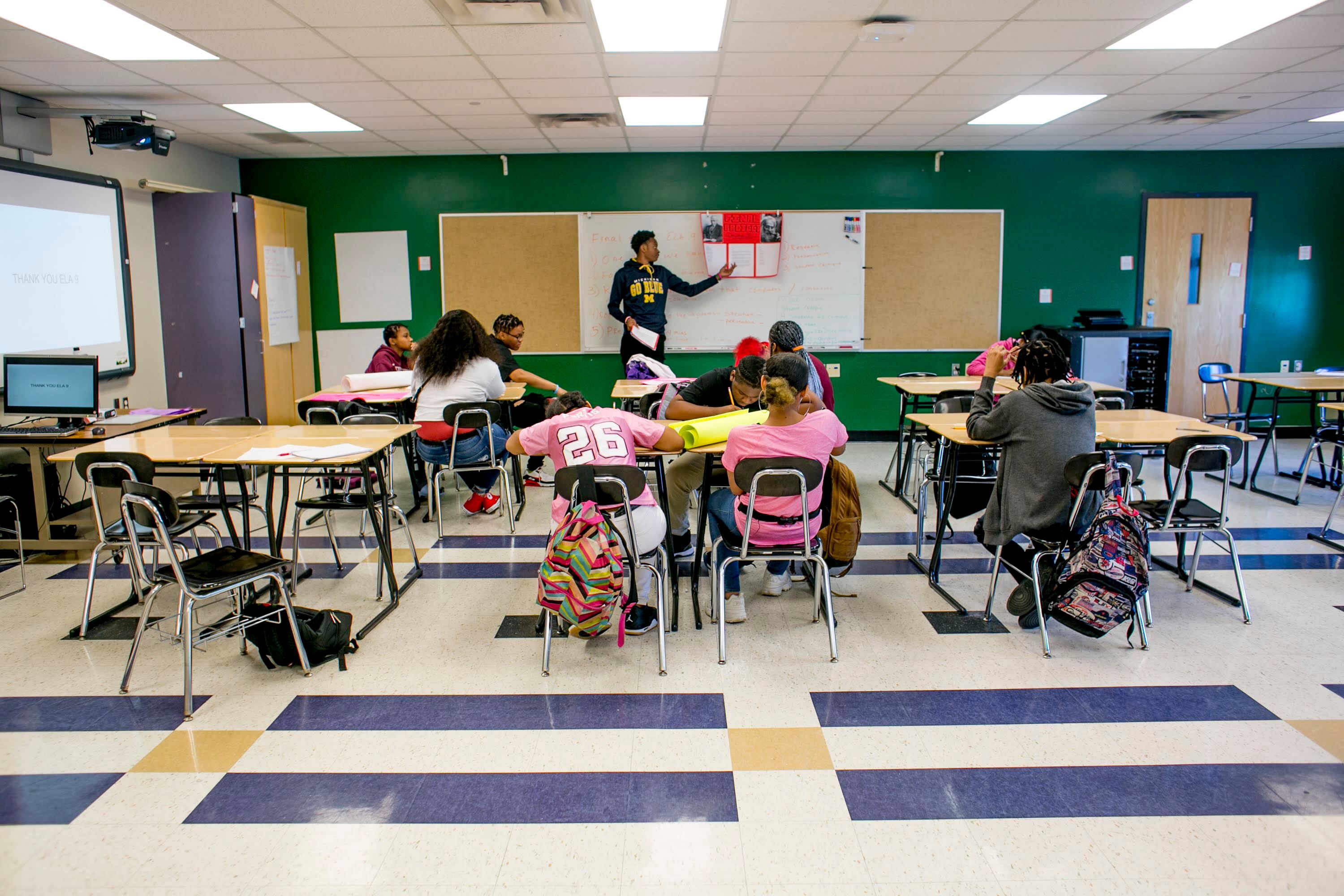Detroit school district leaders are urging Gov. Gretchen Whitmer to reach a settlement with the plaintiffs in a 2016 literacy lawsuit.
“We respect your advocacy for traditional public education throughout the state and in Detroit,” Superintendent Nikolai Vitti and Board President Iris Taylor said in a letter to the governor. “However, we encourage you to stop listening to attorneys and rely on your instincts.”
The lawsuit, which was filed on behalf of a handful of Detroit students, sought to hold state officials responsible for systemwide failures that the plaintiffs say have deprived Detroit children of their right to literacy, left many classrooms and buildings in terrible condition, and left teachers without the resources they needed to do their jobs. The lawsuit seeks remedies that include literacy reforms, interventions and facility fixes.
Last week, a federal appeals court ruled that students have a right to literacy, overturning a district court decision that threw out the case because there is no federally mandated right to an education. Legal experts described the appeals court ruling as a historic win for a case that was considered a long shot.
“The decision shines a bright light on the State’s failures toward the school district’s children and employees, mainly teachers,” the letter from Vitti and Taylor said. “Despite the district’s improvement under an elected empowered school board and appointed superintendent, the legacy of state control will negatively impact children and the community for years. Accountability and justice are required.”
The state oversaw the district for much of the last 20 years until 2016, when Michigan lawmakers OK’d a $617 million plan to address crushing debt in the city’s school district. That plan called for creating a new district — the Detroit Public Schools Community District — to educate students. The old district — Detroit Public Schools — exists to collect tax revenue and pay debt.
Vitti and the school board have discussed suing the state over the district’s condition after it was left in state control, but haven’t. The district filed a brief in support of the plaintiffs in the literacy case.
During state control, the local school board was disempowered, teacher salaries suffered, multiple schools closed, and the district was left deeper in debt.
State officials may decide to appeal the decision, but the victory is key for advocates fighting for equitable school funding. The community group 482Forward launched a social media campaign urging people to record videos asking the governor to to settle the lawsuit by May 7.
Vitti and Taylor also pressed the governor to address statewide school funding inequities.
“Governor, now is the time for you to leverage this decision to make inroads in the historic and current inequity that holds back the potential of our students,” the letter said.
Read the letter below:







